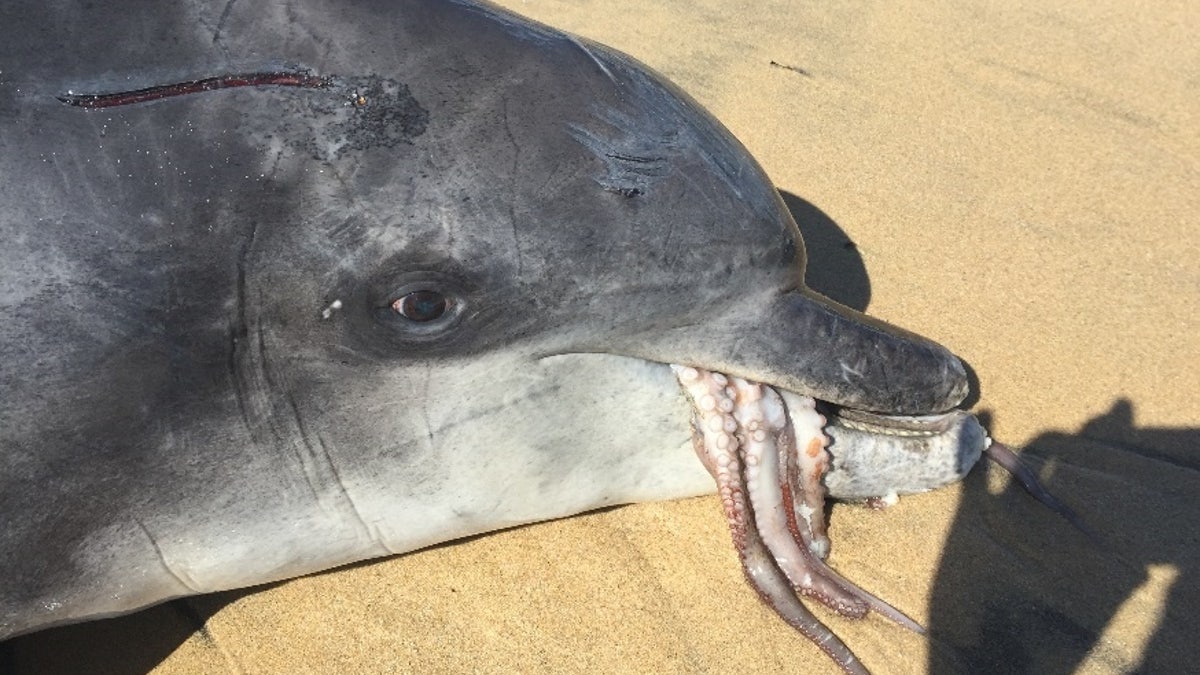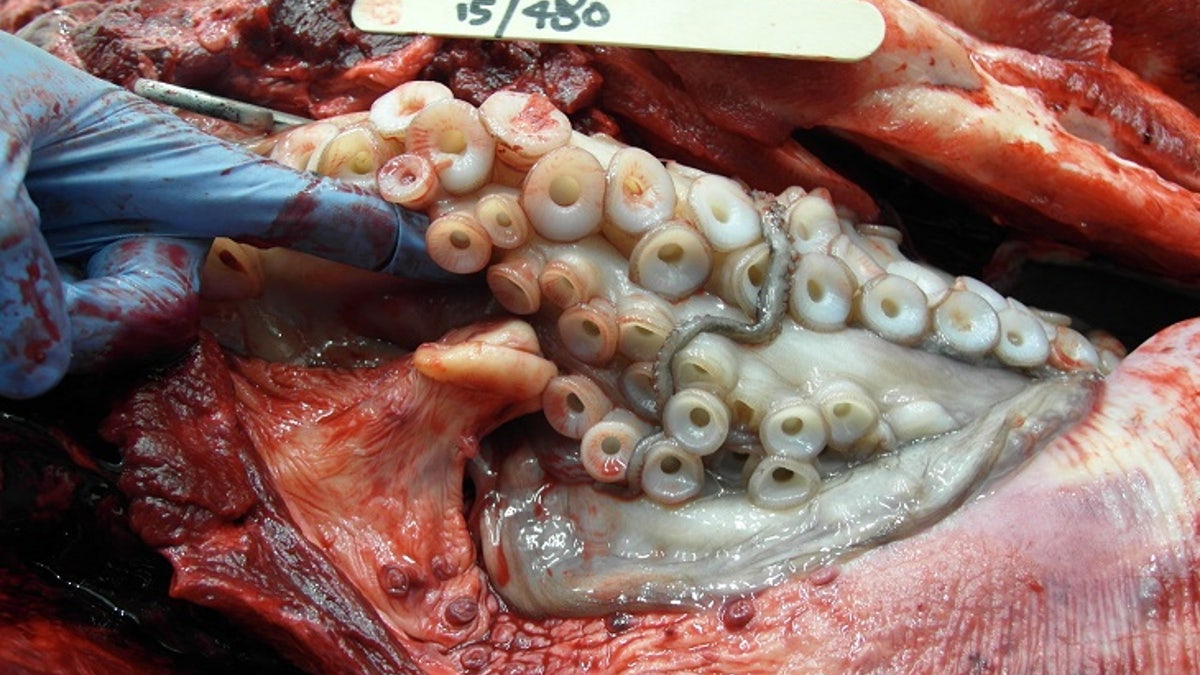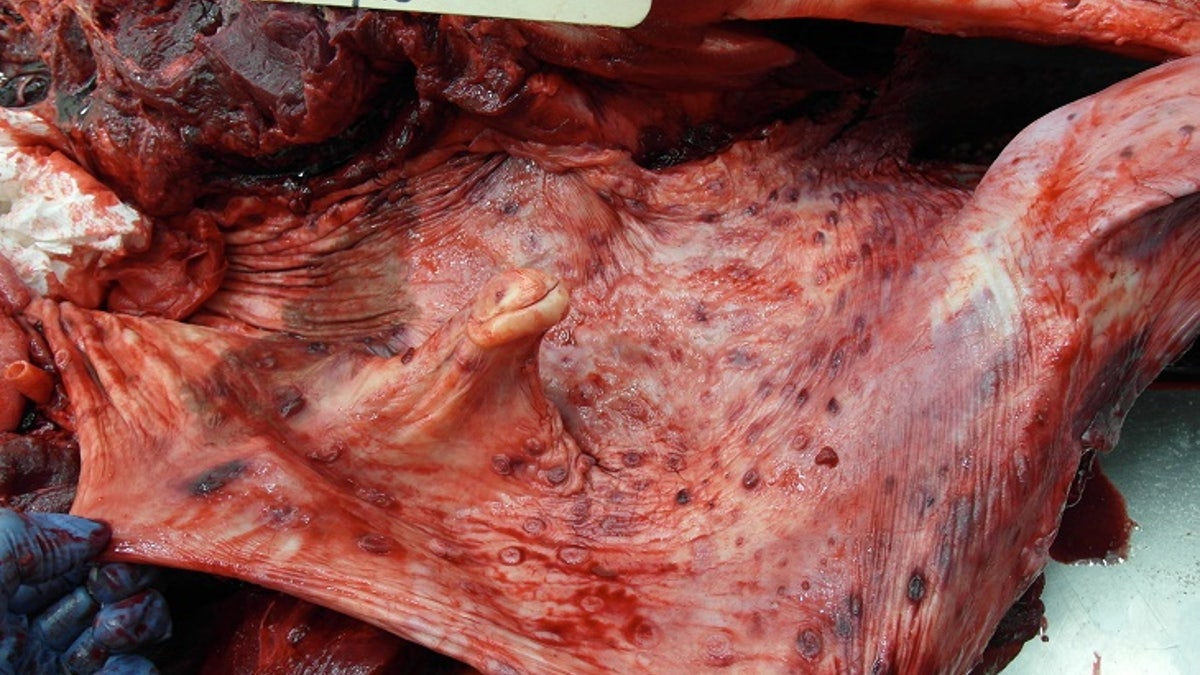
Gilligan found on the beach dead. (John Symons, Murdoch University, first published in Marine Mammal Science)
WARNING: ARTICLE CONTAINS GRAPHIC IMAGES
A dolphin was found washed up on an Australian beach after apparently choking to death on a large octopus.
A study published in Marine Mammal Science stated Gilligan, the name scientists gave to the dead male Indo-Pacific bottlenose dolphin, was the “first known cetacean to die from asphyxiation by octopus,”
Nahiid Stephens, the leader of the study, called the dolphin “greedy” for swallowing the large octopus whole. Stephens is a pathologist employed at Murdoch University in Perth, Australia.
"It really was a huge octopus, I just kept pulling and pulling and thought, 'My God! It's still coming,'" Stephens told National Geographic. The pathologist said one of its tentacles was 4.2 feet long.
DISABLED HEDGEHOG RECEIVES HYDROTHERAPY TREATMENT
Stephens did a post-mortem on Gilligan in Aug. 2015 to find out what happened to the cetacean and found the clever octopus was able to latch on to the dolphin’s larynx which stopped him from breathing correctly. Gilligan was discovered with some of the octopus hanging out of its mouth.

The octopus found within the dolphin's back of the mouth and esophagus. (Dr Nahiid Stephens, Murdoch University. First published in Marine Mammal Science)
"That octopus might have been, in theory, dead, but the sucker was still functional," Stephens said.
Kate Sprogis, of Murdoch University, said octopus “is not easy prey to just swallow.”
Sprogis said she watched dolphins eating octopi and saw the cetaceans were able to break up the mollusks by tossing it in the air, tearing it apart into small pieces.
"It's quite energetically demanding for the dolphins,” Sprogis said. She believes octopi may be highly nutritious.
RACCOON CAUGHT BREAKING INTO TENNESSEE CELL PHONE STORE

The picture shows the dolphin's mouth opened up to show its arm sucker marks on the back side of the dolphin's oral cavity/throat. (Dr Nahiid Stephens, Murdoch University. First published in Marine Mammal Science.)
Sprogis said these dolphins, unlike Gilligan, broke up the octopus which allowed them to eat and digest it properly.
“He (Gilligan) obviously didn't toss it enough, and got a bit cocky and swallowed it," Sprogis said.
Stephens said Gilligan’s death helped scientists to learn about “animals and their biology.”
"These opportunities don’t come up that often," Stephens said. "So the more we can visualize these individuals after the unfortunate, tragic event of their death, the better it is."




















